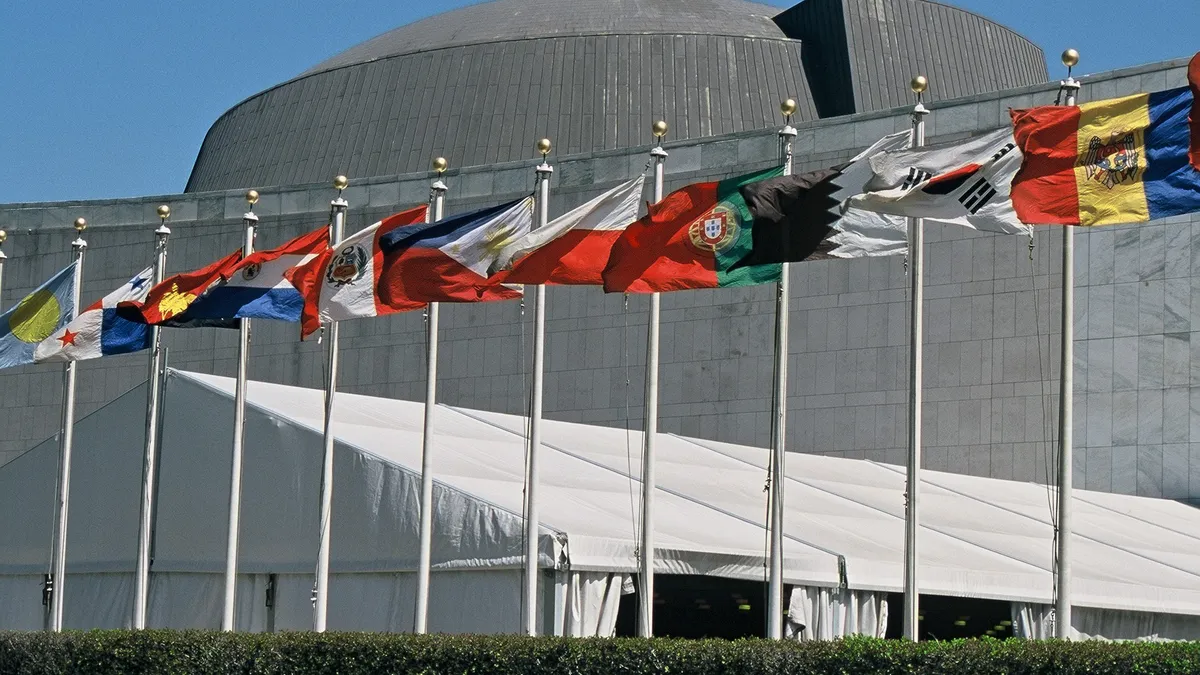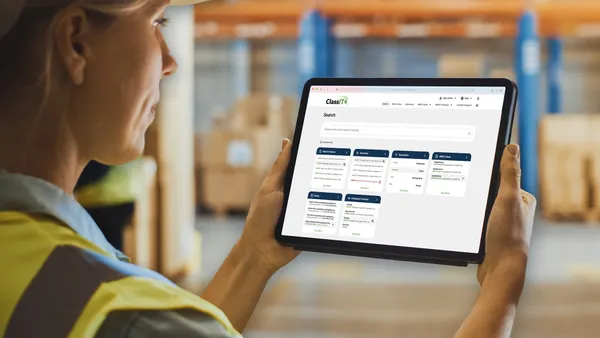Dive Brief:
- The United Nations World Food Programme (WF) and Japan-based NEC Corporation last week announced they would work together to develop an information platform to help emergency responders pair need with supply in the case of pandemics.
- The portal is designed on behalf of the new Global Pandemic Supply Chain (PSC) Network, whose public and private members commit to assess supply chain inefficiencies that cost lives during global health crises.
- NEC aims to design a platform that can track pandemic response items, like protective clothing and medical equipment, end-to-end while also helping managers report and integrate data from existing or local logistics and warehouse management systems.
Dive Insight:
The value of the supply chain can't be underestimated in emergency intervention, as shown by the creation of the PSC Network whose first task is to develop an end-to-end visibility platform.
The network was created in response to the lessons of the 2014 Africa Ebola outbreak, where a lack of logistics infrastructure and public-private collaboration slowed the deployment of vital supplies, costing lives in the process. The new joint effort promises to address these inefficiencies — whether it is lack of inventory management, cold storage capacity, a delivery workforce or mismatched supply and demand.
Like the problems, solutions are multi-faceted and require diverse stakeholders. Past efforts have shown combining individual institutions' expertise can unlock outside-the-box solutions.
In just one example, UPS and Gavi — the global vaccine alliance — partnered to improve health systems in developing countries. Yet, rather than invest in roads, drones or warehouses as would be expected from UPS, the company's representative decided investing in the healthcare professionals managing the supply chain would provide a greater ROI, which was 15% of Gavi's budget. In making supply chain leaders of healthcare professionals, SCM World reports, the original training to improve end-to-end communication, collaboration and efficiency could be passed down through generations. The partners seek to train 150-200 professionals by 2017.
The PSC Network's inclusion of long-standing public institutions like the WFP and the World Bank as well as diverse private institutions — like healthcare product supplier Johnson & Johnson, logistics behemoth UPS and communications provider NEC Corporation — promises innovation within global crisis management.













